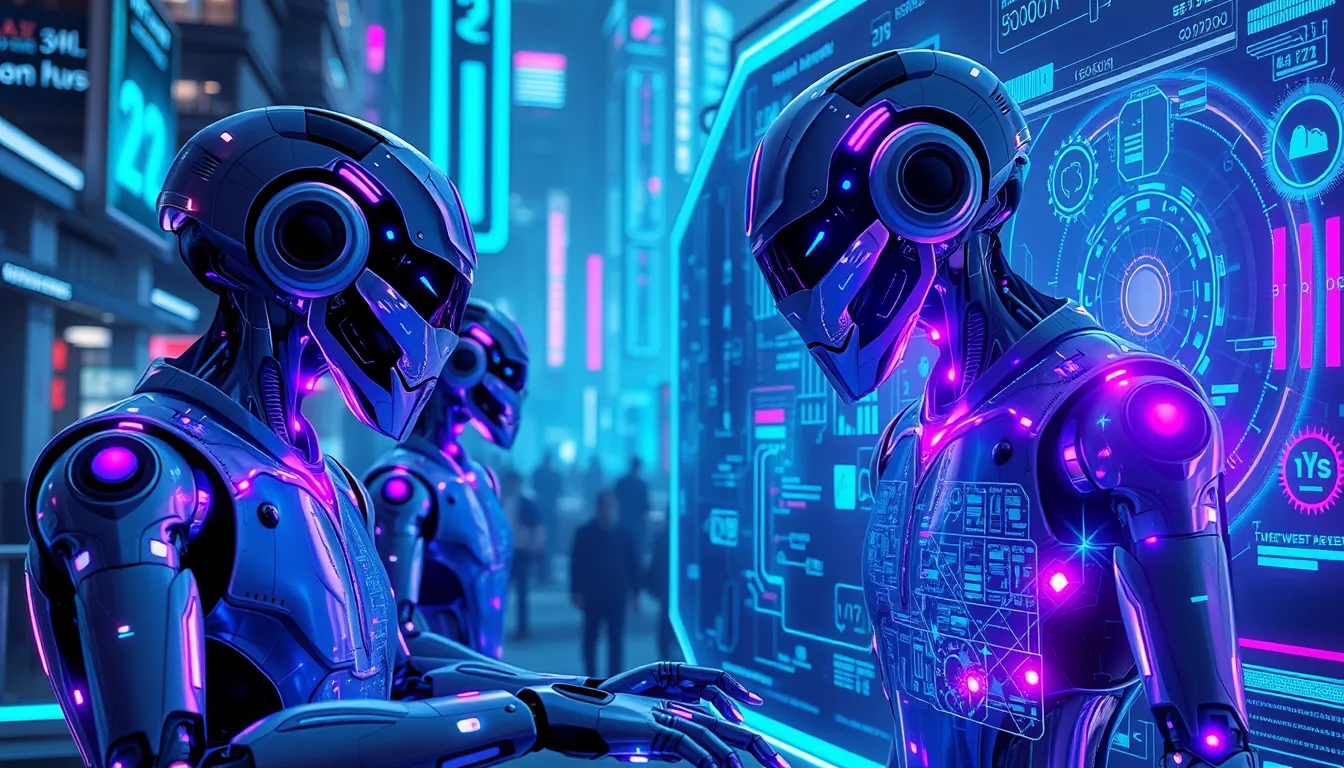Now Reading: Generative AI Business Transformation & Ethical Innovation
-
01
Generative AI Business Transformation & Ethical Innovation
Generative AI Business Transformation & Ethical Innovation

Generative AI Business Transformation & Ethical Innovation
Introduction
Generative AI is rapidly redefining the landscape of modern industries, powering a new era of business transformation and ethical innovation. This breakthrough technology not only reshapes business operations but also impacts political strategies and societal norms. In today’s digital world, generative AI business transformation is at the forefront of a global revolution. By leveraging sophisticated machine learning models, companies, governments, and creatives are exploring innovative ways to increase efficiency, enhance decision-making processes, and encourage ethical practices in an increasingly complex ecosystem.
How Generative AI is Reshaping Business Operations
The use of generative AI in business transformation has become essential. Many organizations are adopting this technology to streamline workflows, enhance content creation, and boost competitiveness. Specifically, the focus on generative AI business transformation is evident in areas like marketing automation, product design, and customer engagement. Companies are now able to:
- Automate repetitive tasks while still producing creative outputs.
- Generate predictive analytics that assist in market trend forecasting.
- Improve operational efficiency through advanced decision-making algorithms.
How Generative AI Reshapes Business Operations
One critical long-tail keyword we want to emphasize is “how generative AI reshapes business operations.” The integration of AI tools into daily business functions not only cuts costs but also catalyzes innovation. Businesses are transforming traditional models by embedding AI-driven processes that make them agile and responsive. The resulting generative AI business transformation not only boosts productivity but also provides a competitive advantage in an era characterized by technological disruption.
Political and Societal Impacts of Generative AI
Generative AI is not confined to the realm of business – its influence extends into politics and society. Political campaigns are now exploring the potential of AI-driven strategies, leading to advanced techniques in audience targeting and message personalization. This is highlighted by the long-tail keyword, “generative AI impact on political campaigns.” However, as political entities embrace these technologies, concerns about AI misinformation and data manipulation are becoming more prevalent.
Furthermore, the widespread use of generative AI in political contexts reinforces debates about transparency and accountability. Issues such as AI in politics and the dissemination of misleading content require stakeholders to consider the ethical implications of these emerging tools. Ensuring a secure and responsible application of AI in the political arena is essential for maintaining public trust and democratic values.
AI in Society and Ethical Implications
Beyond political applications, the societal impact of generative AI touches on culture, art, and everyday life. As the barrier to entry for creative expression lowers, individuals across various demographics are empowered to produce art, literature, and music with the help of AI. This democratization, however, comes with its challenges. The conversation around generative AI ethics is gathering momentum as calls intensify for clear ethical guidelines. Questions regarding intellectual property rights, content authenticity, and accountability converge under the umbrella of generative AI business transformation initiatives.
Ethical Challenges of Generative AI
Among the most pressing issues is the ethical challenges of generative AI. Companies must navigate a fine line between innovation and responsibility. Many worry about potential abuses of the technology, especially regarding deep fakes, manipulation in political campaigns, and the spread of misinformation. These ethical challenges demand an industry-wide dialogue that incorporates legal frameworks, technical solutions, and governance measures. Key points include:
- Transparency in AI-generated content.
- Fair use and ownership of creative outputs.
- Rigorous validation mechanisms to mitigate misinformation risks.
Each of these points is integral to understanding the broader picture of generative AI ethics. Businesses and regulators alike are called to action to ensure that the generative AI business transformation advances society in a fair and ethical manner.
Conclusion
In conclusion, the transformative power of generative AI is clear. Its role in business transformation is significant, as it drives innovation, enhances operational efficiencies, and fosters ethical practices across sectors. As we have explored, generative AI not only reshapes business operations but also plays a critical role in political and societal domains. The attention to generative AI business transformation highlights the need for balancing technological advancements with ethical stewardship, ensuring that benefits are maximized while potential risks are carefully mitigated.
By embracing this transformative technology, stakeholders—from business leaders to policymakers—can work together to harness the vast potential of generative AI. For further insights into the latest trends in technology and innovation, be sure to explore trusted sources such as TechCrunch.
This comprehensive analysis underscores the evolution of generative AI and its wide-reaching implications. In a time when digital transformation is more critical than ever, understanding the dual role of innovation and ethics becomes paramount to driving sustainable progress in our interconnected world. Whether in reshaping business operations or redefining political campaigns, generative AI business transformation offers a roadmap for future success while navigating the ethical challenges inherent in next-generation technology.
Ultimately, as generative AI continues to evolve, its dynamic impact will persist as a catalyst for change. This article serves as a call to action for all stakeholders to approach these innovations with both enthusiasm and careful consideration, ensuring a future that is not only technologically advanced but also inclusive and ethically sound.

























